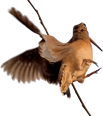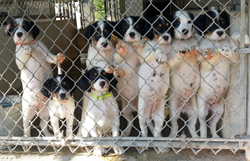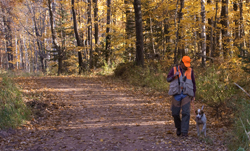Bird finding
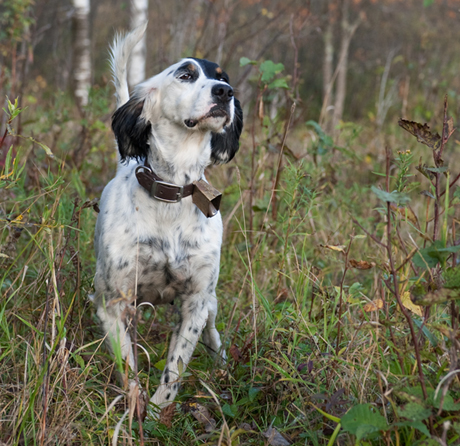
A bird dog can never be too good at bird finding. In general, better bird finders have greater desire and focus to find a bird. That said, however, listed below are some random thoughts on bird finding.
→ Some dogs find more birds than others due to a combination of good genes and plenty of opportunities. I have known many hunters who have owned few bird dogs but each became an outstanding bird finder. These owners maximize—and maybe even over-achieve—the genetic potential of their dogs.
→ There are both “bird pointers” and “bird finders.” The former look like they’re hunting but usually point only those birds they come upon while “bird finders” are totally focused on looking for birds and purposely go where they think the bird will be. When birds are plentiful in early season, in the peak of a grouse cycle or with boom bobwhite quail , it can be hard to distinguish the two. But when those birds thin out in late season or in low population years, it will be obvious which dog is the “bird finder.”
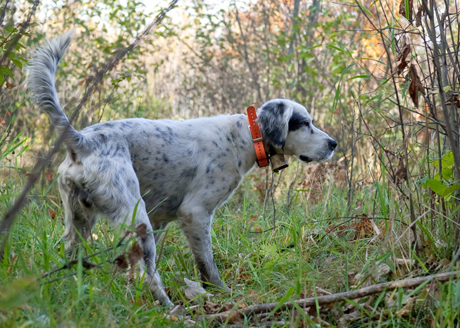
→ Some bird dogs just have a knack. They always seem to know what direction the handler is headed, continually show up in front and hunt the right areas, all at the same time, without, seemingly, undue effort.
→ While desire to find birds and wider range frequently go hand-in-hand, it’s not always so. Some dogs have a tremendous desire to hunt for birds—just at a closer range.
→ Dogs that are hunting and want to find birds adapt their range to the terrain. In open or sparse terrain, these dogs run fast to a good spot, slow down to hunt the cover and then speed up to hunt the next likely looking area. In dense terrain, they’ll naturally hunt closer.
→ There are dogs that, when turned loose to hunt, just go to birds. Dogs like this seem to know where birds are even if they’ve never been on that ground before. Whether it’s exceptional scenting ability, intelligence, experience or a combination of them all, I’m not sure of the reason. Maybe there’s even some aura birds put out that good dogs sense. Or maybe the dogs have associated the smell of certain vegetation preferred by specific birds with the scent of the birds themselves. This talent isn’t necessarily associated with experience because I’ve had dogs with only one or two hunting seasons exhibit this ability. One certainty is that these dogs can be harder to handle because their desire to find birds is stronger than their desire to keep track of handlers….which also, though, doesn’t mean they are self hunters. Rather these dogs check in with handlers less frequently than might be comfortable.
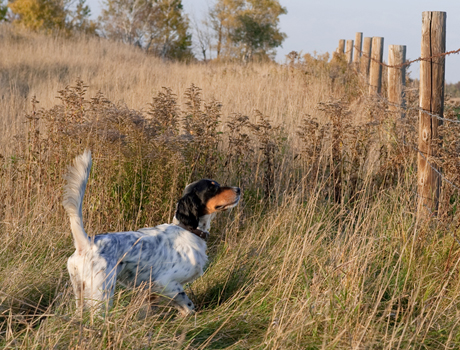
→ Dogs remember areas where they’ve found birds. One time might do it. I think this ability is deeply rooted in their genes and is associated with the finding of food, the most basic survival instinct. When starting puppies we put pigeons out in the field for them to find. At the following session, the pups commonly go to the exact place from the time before. This happens with adult dogs, too, when hunting the same coverts multiple times.
→ All birds run to escape predators. It takes time for dogs to correctly follow birds. Inexperienced dogs usually follow the trail into the wind…which might be the bird’s back trail instead of the direction it was headed.
→ Hunting into the wind is always best as dogs get the most efficient use of their scenting ability. Hunting into the wind is also more important in open country with low vegetation. There are many obstacles in the woods to deter the wind.
Photos by Chris Mathan, The Sportsman’s Cabinet.

